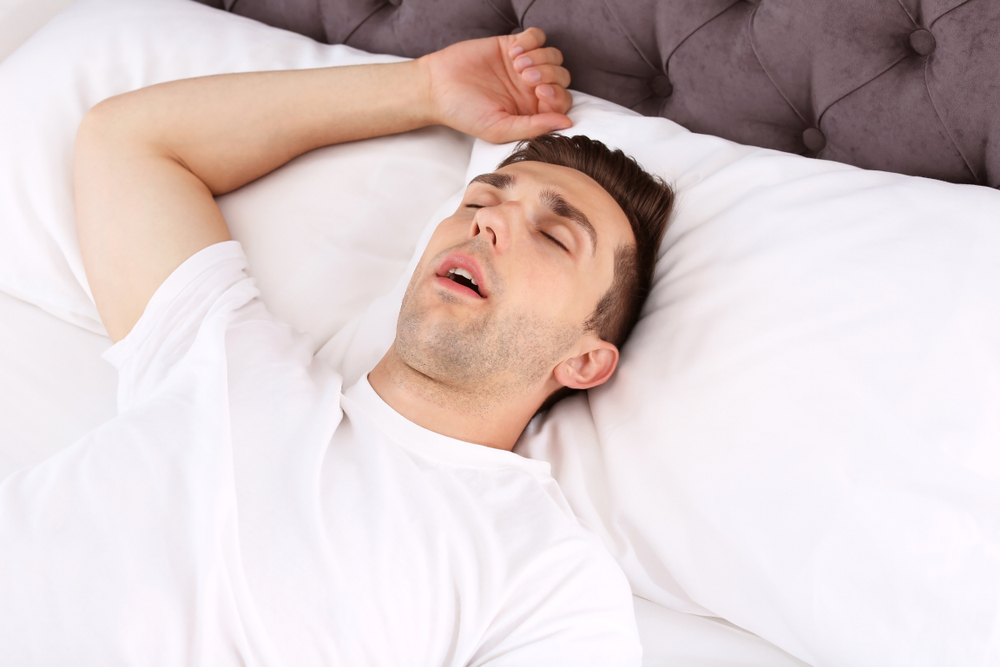
Sleep apnea is a common sleep disorder that affects millions of people worldwide. It is a condition where your breathing repeatedly stops and starts during sleep, leading to fragmented and poor-quality sleep. Understanding the different types of sleep apnea is crucial for effective diagnosis and treatment.
What is Sleep Apnea?
Sleep apnea is a sleep disorder characterized by repeated pauses in breathing during sleep. These pauses, known as apneas, can last for a few seconds to a few minutes and can occur multiple times throughout the night. This disruption in breathing can lead to various health problems, including daytime fatigue, headaches, and an increased risk of cardiovascular issues.
Understanding the Different Types of Sleep Apnea
There are three main types of sleep apnea: obstructive sleep apnea (OSA), central sleep apnea (CSA), and complex sleep apnea syndrome (CompSA). Each type has its own unique characteristics and requires different approaches for diagnosis and treatment.
Obstructive sleep apnea is the most common type of sleep apnea. It occurs when the muscles in the back of your throat relax during sleep, causing the airway to become partially or completely blocked. This can lead to interrupted breathing and reduced oxygen levels in the blood. OSA is often associated with risk factors such as obesity, a large neck circumference, and genetics.
Central sleep apnea is a less common type of sleep apnea. It occurs when the brain fails to send the proper signals to the muscles that control breathing, leading to pauses in breathing during sleep. Unlike OSA, there is no physical obstruction in the airway. CSA is often associated with underlying medical conditions, such as heart failure, stroke, or neurological disorders.
Complex sleep apnea syndrome, also known as treatment-emergent central sleep apnea, is a combination of both obstructive and central sleep apnea. It occurs when a person with OSA develops central sleep apnea while being treated with positive airway pressure (PAP) therapy, such as continuous positive airway pressure (CPAP) or bilevel positive airway pressure (BiPAP). CompSA is a more complex condition that requires specialized treatment, often involving a combination of PAP therapy and other interventions.
The Role of a Dentist in Diagnosing and Treating Sleep Apnea
While sleep apnea is typically diagnosed and treated by a sleep specialist, such as a pulmonologist or a neurologist, dentists can also play a crucial role in the management of this condition. Dentists are often the first healthcare professionals to recognize the signs and symptoms of sleep apnea, as they can identify oral and craniofacial characteristics that may contribute to the condition.
Dentists can perform a comprehensive evaluation, including a physical examination of the oral cavity and the airway, and may recommend appropriate diagnostic tests, such as a sleep study or an at-home sleep apnea test. Based on the findings, dentists can then work closely with the sleep specialist to develop a personalized treatment plan.
Benefits of Using a Custom-Made Snore Guard for Sleep Apnea
One of the treatment options for sleep apnea that dentists may recommend is the use of a custom-made snore guard, also known as an oral appliance or a mandibular advancement device (MAD). These devices are designed to hold the lower jaw in a forward position during sleep, which can help keep the airway open and reduce the occurrence of apnea events. The benefits of using a custom-made snore guard for sleep apnea include:
- Improved sleep quality: By keeping the airway open, a custom-made snore guard can help reduce the number of apnea events and improve the overall quality of your sleep.
- Reduced snoring: These devices are effective in reducing or eliminating snoring, which can benefit both the person with sleep apnea and their sleeping partner.
- Increased comfort: Custom-made snore guards are designed to fit your unique oral anatomy, providing a comfortable and personalized solution compared to one-size-fits-all devices.
- Improved compliance: Patients often find custom-made snore guards more comfortable and easier to use than other sleep apnea treatments, leading to better long-term compliance with the therapy.
- Versatility: Snore guards can be used as a standalone treatment or in combination with other therapies, such as CPAP, to provide a more comprehensive approach to managing sleep apnea.
The effectiveness of a custom-made snore guard may vary depending on the severity of your sleep apnea and your individual response to the treatment. Your dentist will work closely with you to determine the most appropriate solution for your needs.
Get Started with Castro Valley Dentistry Today
Sleep apnea is a complex condition that can have significant impacts on your overall health and well-being. Understanding the different types of sleep apnea, including obstructive, central, and complex sleep apnea, is crucial for effective diagnosis and treatment.
By working closely with a dentist, you can develop a personalized treatment plan that addresses the specific challenges you face. This may include the use of a custom-made snore guard, which can provide a comfortable and effective solution for managing your sleep apnea.
If you are experiencing symptoms of sleep apnea, schedule a consultation with Castro Valley Dentistry to get the personalized care and treatment you need. Take control of your sleep and your health, and start your journey to better sleep and better health. Visit our office in Castro Valley, California, or call (510) 674-0900 to book an appointment today.








